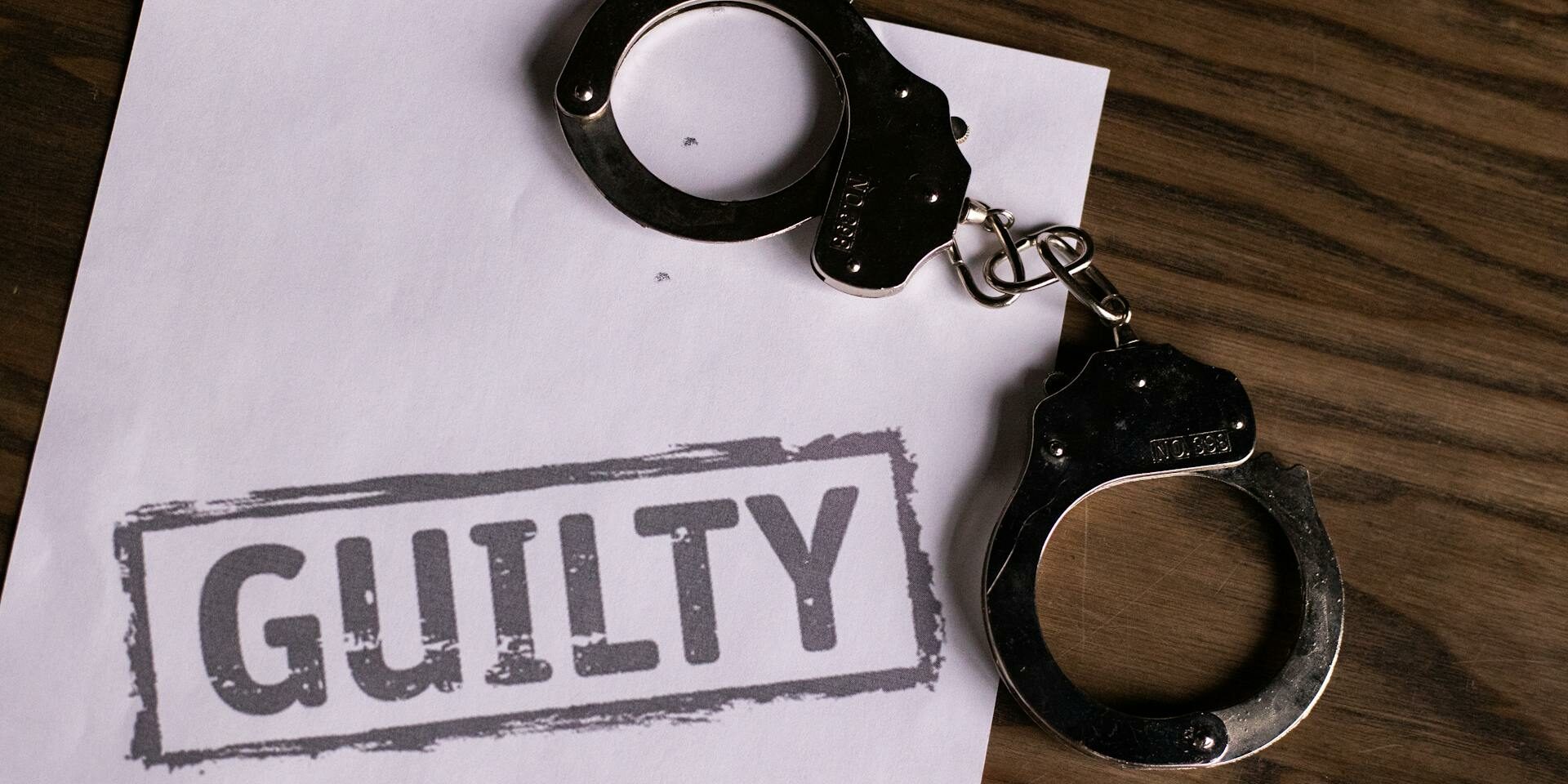When facing criminal charges, the accused may contemplate entering a guilty plea. Motives for this can be unique to the individual, but there are several reasons to consider a guilty plea. Expressing remorse, avoiding the stress and expense of a trial, and the potential for leniency are often cited as explanations for choosing to plead guilty.
What is a Plea of Guilty?
A guilty plea carries considerable weight and sets a number of actions in motion. When offering a guilty plea, you admit to committing the offence brought against you. Additionally, you relinquish the right to trial. Should the court accept the plea of guilty, the next phase is sentencing.
There are several legal implications of pleading guilty, and it is vital you understand the repercussions of your plea. The consequences of a guilty plea include,
- Sentencing the defendant according to the crime
- The possibility of mandatory sentences
- Future travel restrictions or possible deportation
- Civil lawsuits based on the guilty plea
- Employment difficulties
- A criminal record
Assessing the Evidence Before Pleading Guilty
Knowing what evidence exists that is not in your favour is a pivotal component to deciding how you should plead. Your legal counsel can receive copies of the evidence compiled against you and determine whether the prosecution has enough substantial evidence for a conviction. Your lawyer will likely advise against a guilty plea if the evidence is weak or flawed. However, your legal counsel may suggest a guilty plea if the prosecution has convincing evidence.
Benefits of Pleading Guilty Early
Your lawyer may see a number of benefits of offering a guilty plea early in the proceedings. These include,
- A quicker resolution of your case without a lengthy trial
- Removes the possibility of a more severe conviction during a trial
- Decreases your legal fees
- An early guilty plea may get you a reduced sentence
- The chance to move forward sooner
Section 9AA of the Sentencing Act Explained
In the Sentencing Act, Section 9AA allows for a sentence reduction (or discount) if the accused offers an early guilty plea. This sentence reduction pertains to the head sentence that the court would have imposed if the offender had gone to trial and been found guilty with no mitigating factors.
If the accused pleads guilty to a charge, the court may reduce the head sentence for the offence. This acknowledges that the State, victim of or witness to the offence, will benefit from the guilty plea.
The offender will receive a more significant reduction of their sentence if they enter a guilty plea early in the proceedings.
If the head sentence for an offence is fixed or includes a fixed term, the reduction of the fixed term (under subsection 2) must not be 25% or more unless the offender pled guilty (or expressed their intent to plead guilty) at the first opportunity to do so.
If the sentence is reduced under subsection 2, the fact and the amount of the decrease must be stated in open court.
The court is not prevented from reducing the head sentence for an offence because of any mitigating cause other than a guilty plea.
Simplified Interpretation of Section 9AA
The purpose of section 9AA is to provide the opportunity to plead guilty and receive a decreased sentence of up to 25% of the sentence if you had gone to trial and were found guilty.
The longer you wait to offer a guilty plea, the smaller the sentence reduction.
According to section 9AA, sentence reduction does not factor in mitigating circumstances that may further reduce the sentence.
Fundamental Legal Principles to Understand
Although the accused must make the choice to plead guilty, it is imperative that the legal principle of innocence, until proven guilty, applies to the case. Additionally, the prosecution must demonstrate proof of guilt beyond a reasonable doubt.
The Presumption of Innocence
The cornerstone of the court process is that every person charged with a crime is believed to be innocent. If you are accused of a crime, you have a number of rights protected by Australian law. These include,
- A quick explanation of the charges
- Help from an interpreter if needed
- The ability to speak with legal counsel and the time to ready a defence
- A trial in person
- For the trial to take place in a reasonable time period
- Legal assistance is assigned to the accused without payment if the accused cannot afford a lawyer
- The right to cross-examine witnesses
- Have a conviction reviewed by a higher court
The Burden of Proof
No person on trial will be seen as guilty. The prosecution must prove their guilt. Circumstantial evidence, theories, suspicions, or feelings of witnesses will not be enough to get a conviction. A conviction occurs when the prosecution can show proof the accused is guilty.
The Standard of Proof: Beyond a Reasonable Doubt
Considering the fact that a person’s freedom and reputation hang in the balance, bringing proof beyond a reasonable doubt is vital. The standard of proof exists to protect against relying on hearsay or weak accusations to convict someone. The accused and their legal team do not carry the weight of proving innocence. The prosecution has the burden of proving beyond a reasonable doubt that the accused is guilty.
Key Considerations When Pleading Guilty
Before pleading guilty to any charges, there are a number of facts that the accused should understand,
- The context and meaning of all elements of charges
- Rights and options of the accused
- Understanding that pleading guilty means total agreement about all parts of the charges
- Understanding that it is not always possible to change a guilty plea
- The details explaining what the maximum penalty for the offence is if they plead guilty
- A not-guilty plea means the prosecution must prove the accused’s guilt
- Understanding all the facts that must be proven for a guilty conviction if the case goes to trial
Potential Consequences of a Guilty Plea
It is necessary to understand what a guilty plea means and how it can impact the accused’s life. Sentencing can happen quickly after an admission of guilt. Possible penalties include,
- A jail sentence
- An imposition of Orders including community based orders, intensive supervision orders and programmatic interventions
- Confiscation of property
- Destruction of property
Conclusion
Pleading guilty to a crime is a significant decision that must be taken seriously. Trusting the advice from your lawyer will help guide your choice to go to trial or submit a guilty plea.
Your legal team will play a significant role in assessing evidence, protecting your rights, and obtaining the best possible outcome for your case.
It is always in your best interest to get advice from experienced legal professionals, no matter the charge. However, if you are planning a guilty plea, it is absolutely critical to work with a lawyer who is experienced in criminal law.
If you are in a complicated legal situation, please contact us. As one of Perth’s top boutique law firms, we can offer you personalised help to get the best possible outcome for your case.
**Please Note**
The material presented in this post is for informational use only. It does not constitute binding legal advice and should not be a replacement for a consultation with a legal professional








